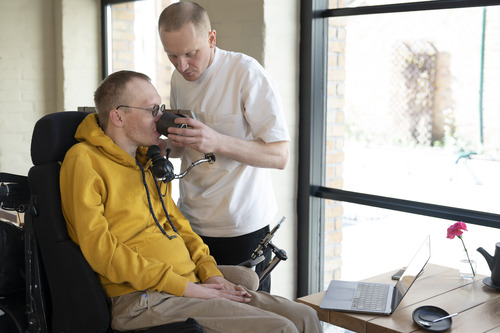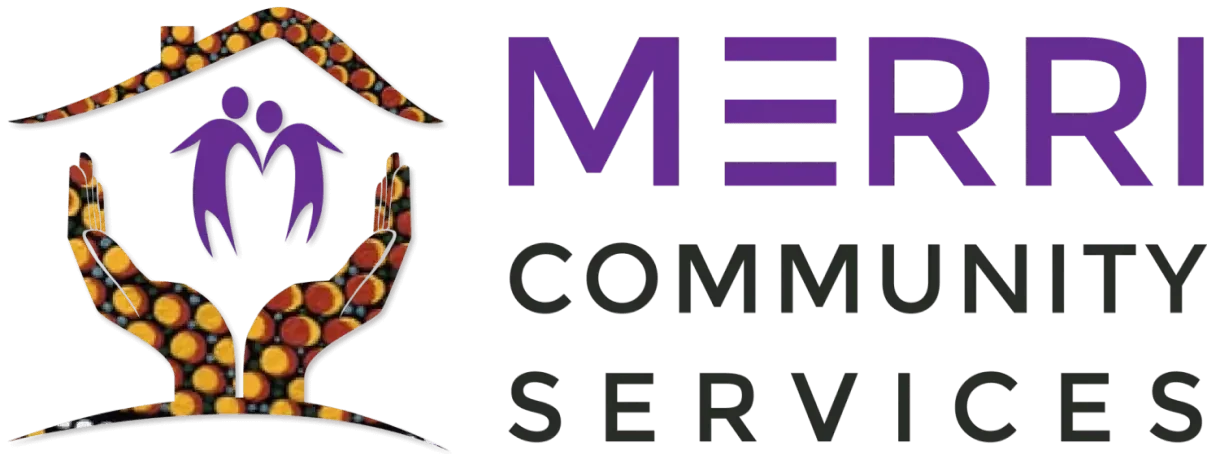For individuals with complex needs, Specialist Disability Accommodation SDA ndis eligibility stands as a pivotal lifeline. This specialized form of accommodation goes beyond the ordinary and becomes a beacon of hope for those who require tailored support. However, before we delve into the details of SDA, it’s vital to grasp the broader context in which it operates the “National Disability Insurance Scheme”.
NDIS serves as the bedrock, the support system, and the guiding light for individuals with special and complex needs. In this article, we will navigate the intricate landscape of NDIS, comprehending why it is so crucial, as it paves the way for a deeper exploration of how SDA fits into this transformative framework.
NDIS on its Journey to Empower Lives
The National Disability Insurance Scheme (NDIS) is a game-changer for Australians with special and complex needs. In this comprehensive guide, we will explore NDIS’s pivotal role in providing specialized care and support, as well as the numerous benefits it offers:
1. Exploring NDIS

· The Catalyst for Change
- Personalized Support: NDIS offers individuals personalized support plans, ensuring that they receive the care and services tailored to their unique requirements.
- Choice and Empowerment: NDIS empowers participants to choose their service providers, granting them a say in their care and support. From disability consulting services to assistive products and household tasks, it contains all the participants may need.
- Community Involvement: NDIS promotes community participation, enhancing social inclusion, and breaking societal barriers.
· The Power of Inclusivity
- Early Intervention: NDIS is not just about addressing current needs; it’s about preventing future challenges. Early intervention services are available to identify and address potential issues.
- Carer Support: NDIS recognizes the critical role played by carers and provides support to ensure they can continue their invaluable work.
- Employment Opportunities: NDIS is a significant source of employment, creating job opportunities for those wanting to make a difference in the lives of others.
· Embracing Technology
- Harnessing Technology: NDIS embraces technology, making it easier for participants and providers to navigate its services through user-friendly digital platforms.
- Telehealth: The scheme offers telehealth services, ensuring individuals can access healthcare and support remotely, enhancing convenience and safety.
- Financial Management: NDIS’s digital platforms facilitate efficient financial management for participants and service providers, simplifying the process.
· Expanding the Horizons
- Supported Independent Living: NDIS supports participants in transitioning to independent living arrangements, fostering self-sufficiency and personal growth.
- Skills Development: The scheme offers skill-building programs to enhance the capabilities and confidence of individuals with disabilities.
- Innovation and Research: NDIS invests in research and innovation, driving advancements in disability support services and assistive technologies.
The Extraordinary Realm of SDA within NDIS
Within the realm of NDIS, there exists an exceptional domain known as Specialist Disability Accommodation (SDA). SDA transcends the conventional concept of housing and transforms it into a haven of possibilities. Here, dreams take flight, and life’s extraordinary moments are made possible.
SDA, while part of the broader NDIS framework, is specifically dedicated to providing suitable accommodations for individuals with very high support needs. It ensures that the living environment is not just accessible but optimized to enhance the quality of life for those it serves. Here’s a glimpse of what SDA represents:
1. Exploring SDA
· Designed for Accessibility and Convenience
In the context of SDA, accessibility isn’t just a feature; it’s a way of life. SDA properties are meticulously designed to ensure individuals with high support needs can thrive. Let’s explore some remarkable aspects:
- Adaptive Infrastructure: SDA homes are equipped with adaptive features such as wider doorways, ramps, and accessible bathrooms, ensuring that residents can move freely and comfortably.
- Smart Home Technology: Many SDA properties are equipped with state-of-the-art technology, allowing residents to control their living environment with ease, from adjusting lighting to temperature.
· Personalized Support and a Sense of Belonging
SDA doesn’t just provide housing; it offers a home where individuals can nurture their dreams and aspirations. The personalized support here creates a sense of belonging and empowerment:
- Care Plans: Each SDA resident has a tailored care plan designed to support their unique needs, enabling them to live with independence and dignity.
- Community Integration: SDA fosters community involvement, making it easy for residents to engage with the wider community and pursue their interests.
· Creaking Boundaries for a Life lived to the Fullest
SDA transcends physical constraints and opens doors to a world where dreams take flight. It’s about making life extraordinary:
- Beyond Physical Accessibility: SDA properties are designed to facilitate independent living, ensuring that residents can explore their aspirations and lead fulfilling lives.
- Support for Aspiration: SDA offers more than a home; it’s a platform for residents to pursue their goals, whether it’s education, employment, or creative endeavors.
· Adaptive Products Household Tasks
Within the SDA environment, assistive products play a crucial role in making daily living tasks more manageable:
- Innovative Solutions: Assistive products in SDA homes include advanced technologies such as voice-activated appliances, adjustable workstations, and mobility aids, enabling residents to perform household tasks with ease.
- Customized Support: These products are tailored to individual needs, ensuring that residents have the necessary tools and equipment to independently maintain their homes and daily routines.
2. Navigating the Path to SDA NDIS Eligibility
Specialist Disability Accommodation is a transformative program designed to provide specialized support for individuals with high support needs. It’s essential to understand the eligibility criteria and the application and assessment process to access this invaluable support:
· SDA NDIS Eligibility: who can benefit?
Before embarking on the journey to access SDA, it’s crucial to determine if you or your loved one meets the eligibility criteria. SDA is tailored for individuals with significant disabilities, and to qualify, one must:
- High Support Needs: SDA is primarily for those with severe and permanent disabilities that necessitate a high level of support in daily life.
- NDIS Participant: You must be an active participant in the National Disability Insurance Scheme. If you’re not already an NDIS participant, you should initiate the NDIS access process
- Specific Housing Needs: SDA is reserved for those who require specialized housing solutions due to their disability-related needs.
· The Application Process: taking the first step
Once you’ve established your SDA NDIS eligibility, the next step is to apply for SDA. Here’s how the application process unfolds:
- Contact the NDIS: Reach out to the NDIS and express your interest in SDA. They will guide you through the necessary steps and provide you with the relevant forms.
- Complete the SDA Application: You must complete the SDA application form, providing detailed information about your disability, support needs, and living requirements.
- Consult with Support Providers: Collaborate with your support providers, as they will play a crucial role in preparing your application and providing necessary documentation.
· Assessment for SDA: the evaluation process
The assessment process is a fundamental component of accessing SDA and involves thorough evaluation to ensure the right support is provided:
- Review of Documentation: The NDIS will review your application and supporting documentation to understand your disability and support needs.
- Assessment Meeting: An assessment meeting may be scheduled, during which a representative from the NDIS will meet with you to discuss your requirements in detail.
- Determination of Eligibility: Based on the assessment, the NDIS will determine your eligibility for SDA. If approved, you’ll receive a confirmation of your eligibility and can begin the process of selecting an SDA property that suits your needs.
3. Transforming SDA for Specialized Care

Specialist Disability Accommodation offers a diverse range of properties designed to cater to the specific needs of individuals with high support requirements. It can involve various types of SDA properties, from fully accessible homes to shared living arrangements:
· Types of SDA Properties
SDA properties are crafted to provide residents with an environment that supports their unique needs and preferences. Here are some of the main types of SDA properties:
- Fully accessible Homes: These properties are designed with comprehensive accessibility features, including wider doorways, ramps, and accessible bathrooms. Ideal for individuals with mobility impairments, these homes ensure that every part of the living space is easily navigable.
- High Physical Support Homes: These homes cater to individuals with complex physical support needs, offering specialized equipment and fixtures to enhance daily living. Features may include hoists, adjustable workstations, and medical support infrastructure.
- Improved Liveability Homes: Designed to maximize independence, these properties incorporate features like sensory rooms, communication support, and sensory gardens. Ideal for individuals with sensory processing disorders or communication challenges.
- Group or Shared Living Arrangements: Some SDA properties are configured for shared living, promoting social inclusion and camaraderie among residents. These arrangements provide support while allowing individuals to engage with others in a communal setting.
· Significance of Well-Designed and Disability-Friendly Spaces
Well-designed and disability-friendly living spaces are pivotal in the lives of SDA residents, as they contribute to enhanced well-being, independence, and a higher quality of life.
- Independence and Dignity: Accessibility features in SDA properties empower residents to carry out daily tasks independently, fostering a sense of self-worth and autonomy.
- Promoting Inclusivity: Disability-friendly spaces are instrumental in promoting social inclusion, ensuring that residents can engage with their community and peers without barriers.
- Safety and Comfort: The design of SDA properties prioritizes safety, reducing the risk of accidents and providing a comfortable and secure living environment.
- Customization for Unique Needs: Well-designed spaces are adaptable, allowing residents to customize their living area to accommodate their unique requirements, from furniture layout to assistive technologies.
- Supporting Long-Term Goals: SDA properties play a role in supporting residents’ long-term goals, from education and employment to pursuing personal interests and hobbies.
4. Funding and Support for SDA
Funding Specialist Disability Accommodation and understanding the financial intricacies can be a complex but crucial aspect of accessing this specialized support. Additionally, the role of Support Coordinators in guiding individuals through the SDA process is invaluable. In this section, we will explore how the NDIS funds SDA and the role of Support Coordinators in simplifying this journey:
· NDIS Funding for SDA
Funding SDA through the NDIS involves several key considerations:
- Eligibility for SDA Funding: To access SDA funding, individuals must meet specific eligibility criteria, including having high support needs and being an NDIS participant as mentioned above.
- Assessment of Funding: The NDIS conducts assessments to determine the level of support an individual requires. The funding is allocated based on these assessments, ensuring that it caters to the individual’s needs.
- Funding Levels: SDA funding levels can vary depending on the type of property and the specific needs of the resident. It’s essential to understand the funding structure to ensure it aligns with the chosen SDA property.
· Financial Aspects of SDA
Understanding the financial aspects of SDA is paramount:
- Cost-Sharing Arrangements: In many SDA arrangements, residents share the cost of the rent and associated supports with their SDA funding. This cost-sharing model promotes financial responsibility and sustainability.
- Managing Funds: Individuals receiving SDA funding must manage their allocated funds effectively. This includes paying rent and support costs, which may be handled through various financial management models.
- Financial planning: Developing a financial plan is crucial for individuals and their families to ensure long-term financial sustainability, including budgeting for daily expenses, savings, and contingency plans.
· The Role of Support Coordinators
Support Coordinators are instrumental in helping individuals navigate the complex SDA process:
- Assessment and Planning: Support Coordinators assist in the assessment and planning stages, helping individuals understand their SDA eligibility and the funding they may receive.
- Navigating NDIS Systems: Support Coordinators guide individuals through NDIS systems, ensuring that they can access the necessary resources and support services.
- Property Selection: They play a key role in helping individuals choose the right SDA property, considering factors such as location, design, and support services.
- Financial Management: Support Coordinators can help individuals effectively manage their SDA funds, ensuring that they are allocated correctly and used efficiently.
- Long-Term Support: Support Coordinators provide ongoing support, helping individuals adjust to their new living arrangements and addressing any challenges that may arise.
5. Choosing the Right SDA
Receiving SDA NDIS eligibility is a significant milestone, but it’s just the beginning of your journey toward a more supportive and fulfilling living environment. Choosing the right SDA property is a crucial step, as it allows you to shape your living space to meet your specific needs and preferences:
· Consultation with Support Providers
Your support providers play a pivotal role in this phase. They will collaborate with you to understand your requirements and preferences in detail. Through open and ongoing communication, they can help you identify the key features and elements that are essential for your daily life and well-being.
· Exploring Available SDA Properties
SDA offers a diverse range of properties, each with its own design, features, and support services. Here are some aspects to consider as you explore your options:
- Location: SDA properties are often located in various settings, from urban centers to peaceful suburban neighborhoods. Consider what location suits your lifestyle, including proximity to work, community services, and family.
- Design Features: The properties vary in design, catering to different types of disabilities. You can choose a home with features such as wider doorways, accessible bathrooms, and adaptable spaces to accommodate your specific needs.
- Support Services: Different SDA properties may offer various levels of support services, depending on the needs of the residents. Assess the available support to ensure it aligns with your requirements.
· Tailoring your Living Space
One of the remarkable aspects of choosing an SDA property is the ability to customize your living space to maximize your quality of life:
- Assistive Technologies: Explore the assistive technologies integrated into the property, such as voice-activated systems or smart home features that make daily tasks more manageable.
- Furniture and Layout: You can work with your support providers to adapt the layout and furniture in your new home to suit your needs. This ensures that you can move around comfortably and independently.
· Planning for the Future:
Selecting the right SDA property isn’t just about the present; it’s also about planning for the future. Consider how the property can adapt as your needs change over time, ensuring that it remains a supportive and comfortable environment.
6. FAQs regarding SDA
Here are additional questions and answers to provide further information and clarity on SDA and the NDIS:
· How to become NDIS service provider that provides SDA?
To become an NDIS service provider offering Specialist Disability Accommodation (SDA), you need to register with the NDIS Quality and Safeguards Commission and meet the required standards and regulations.
· How do I apply for SDA Funding through NDIS?
To apply for SDA funding, you need to be an NDIS participant. Contact the NDIS, express your interest in SDA, and complete the SDA application form. It’s also advisable to consult with your support providers during the application process.
· Can individuals with SDA funding choose their own SDA Property?
Yes, individuals with SDA funding have the flexibility to choose their preferred SDA property. They can work with their support providers to explore available options and select a property that best suits their needs and preferences.
· Is SDA funding ongoing or does it require regular reassessment?
SDA funding is generally considered ongoing. However, it’s essential to have regular plan reviews with the NDIS to ensure that your SDA funding aligns with your current needs and circumstances.
· Are there specific rules or guidelines for SDA properties?
Yes, SDA properties must adhere to specific design standards outlined by the NDIS. These standards ensure that the properties are disability-friendly, safe, and suitable for residents with high support needs.
· Can individuals with SDA funding make modifications to their chosen property?
Yes, residents with SDA funding have the flexibility to make certain modifications to their chosen property to better suit their needs. These modifications are typically funded through their SDA plan.
· What is the role of SDA providers?
SDA providers are responsible for managing and maintaining the SDA properties. They ensure that the properties meet the required standards and provide essential support services to residents.
· Can individuals access NDIS SDA if they are not NDIS participants?
No, SDA funding is available exclusively to NDIS participants who meet the eligibility criteria. Individuals who are not NDIS participants should start the NDIS access process to determine their eligibility.
· How do individuals transition from SDA to other housing arrangements?
Individuals interested in transitioning to SDA from other housing arrangements should discuss this with their support providers and the NDIS. The process involves assessment, planning, and selecting a suitable SDA property.
· Can individuals change their SDA property if their needs or preferences evolve over time?
Yes, individuals can change their SDA property if their needs or preferences change. This may involve reassessment and a plan review to determine the suitability of a different property.
· Are there support services available to help individuals with SDA funding transitioning to their new homes?
Yes, support services are available to assist individuals with SDA funding in transitioning to their new SDA property. These services can include assistance with settling in, familiarization with the property, and ongoing support.
A Path to More Inclusive Tomorrow with NDIS, SDA, and Merri Community Services
Specialist Disability Accommodation (SDA) within the National Disability Insurance Scheme (NDIS) is a transformative support system that has the power to change lives. By addressing the unique needs of individuals with high support requirements, SDA opens doors to independence, inclusivity, and a brighter future.
As you embark on this journey, remember that expert guidance, like that offered by Merri Community Services, can be instrumental. With the ability to assist multiple companies, including Merri Community Health Services, in providing a spectrum of services ranging from healthcare to accommodation and SDA, the possibilities for individuals with disabilities to lead fulfilling lives have never been more attainable. Together, we can create a more inclusive and supportive world!


